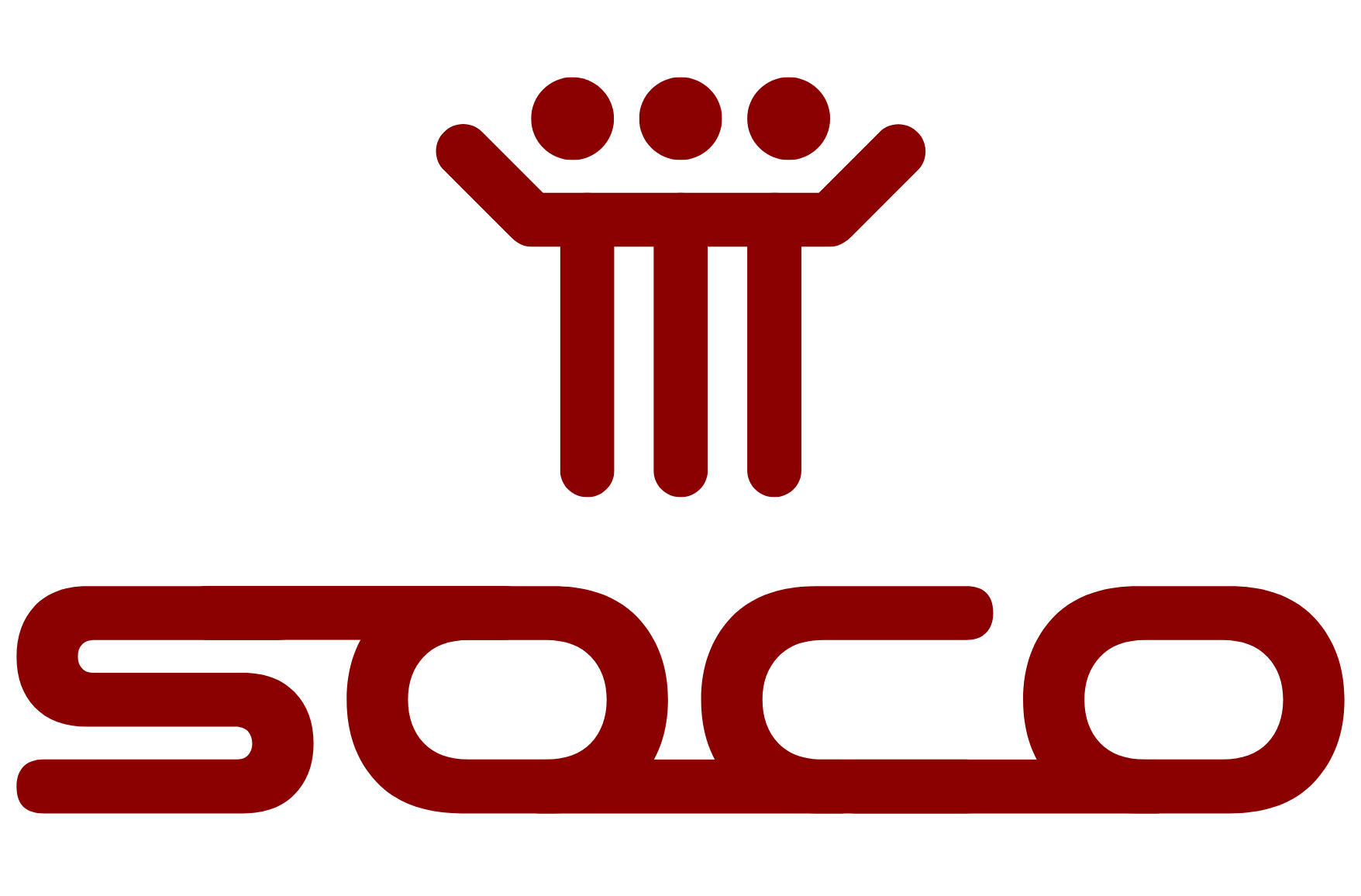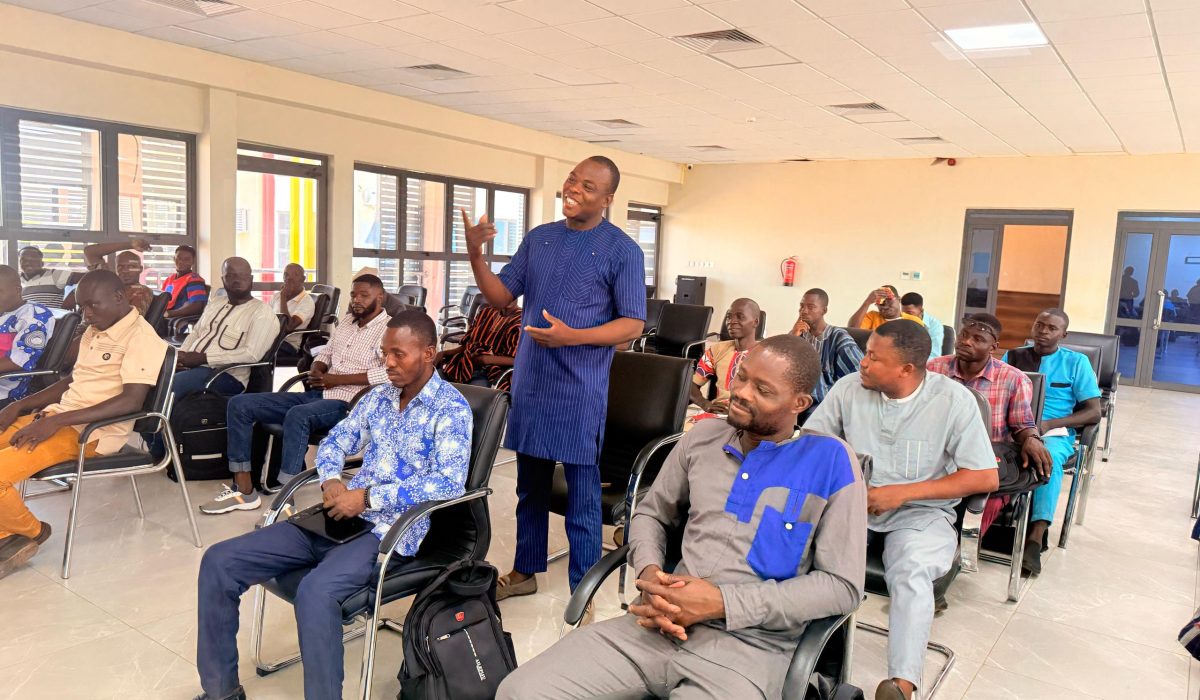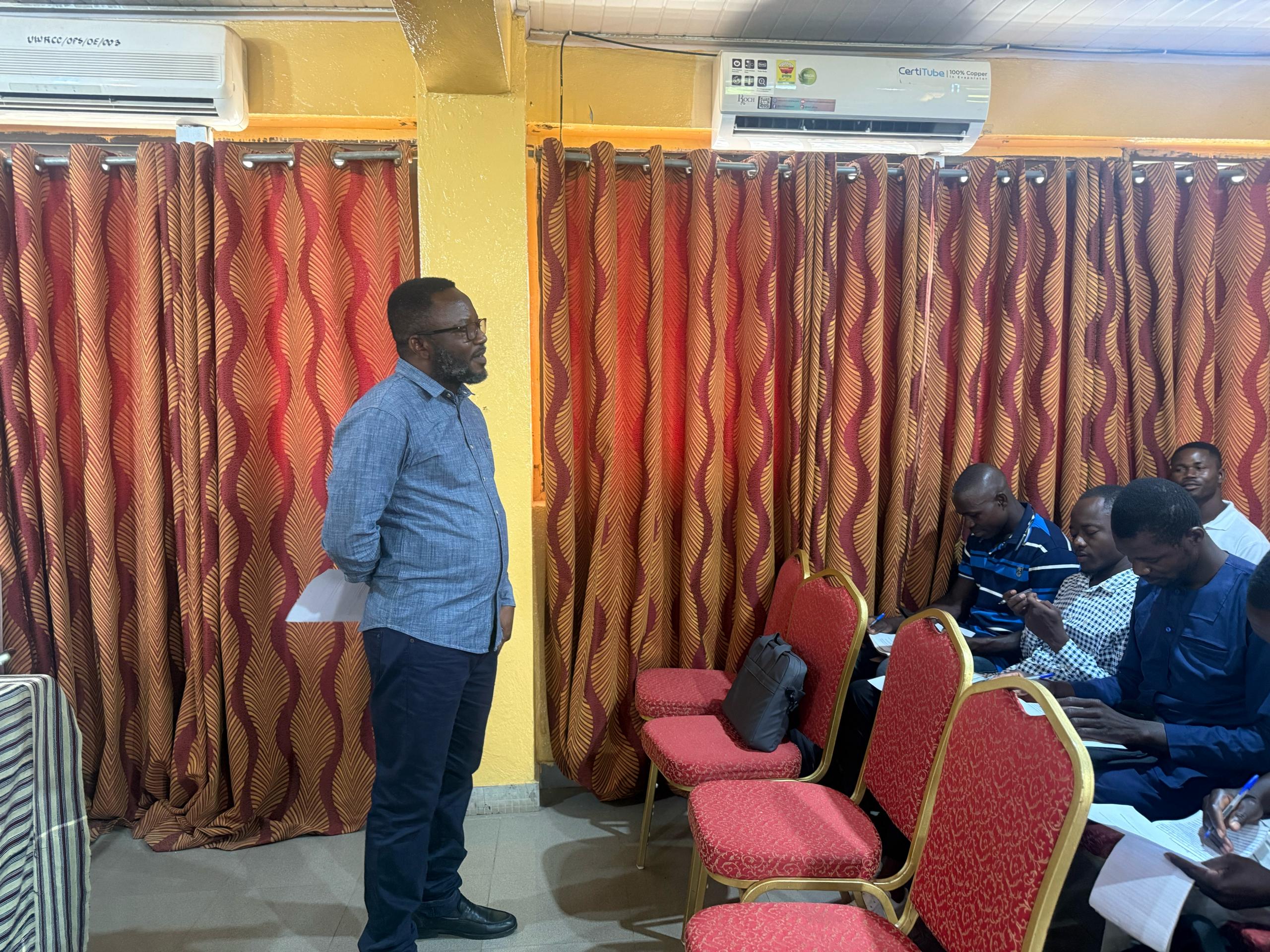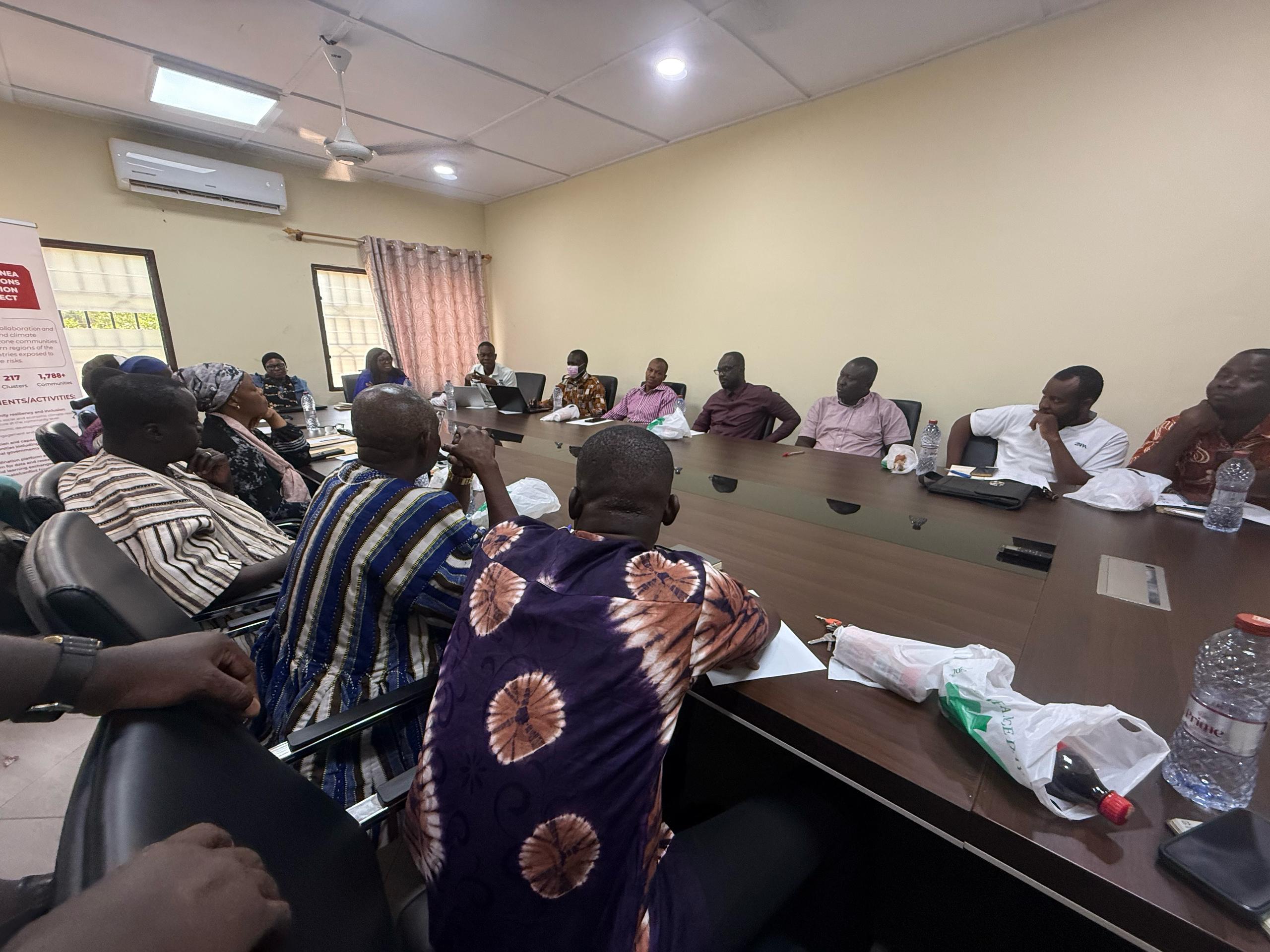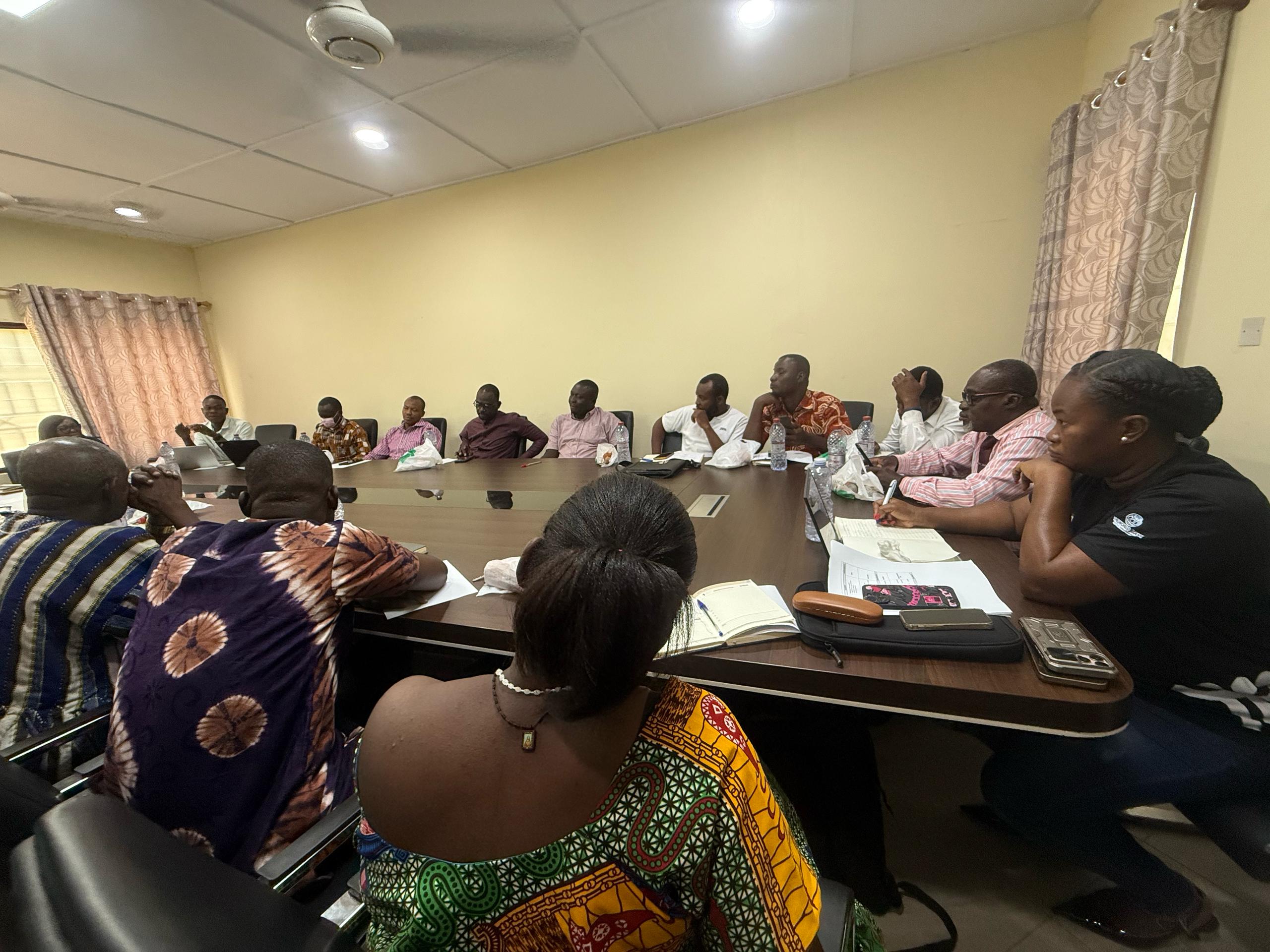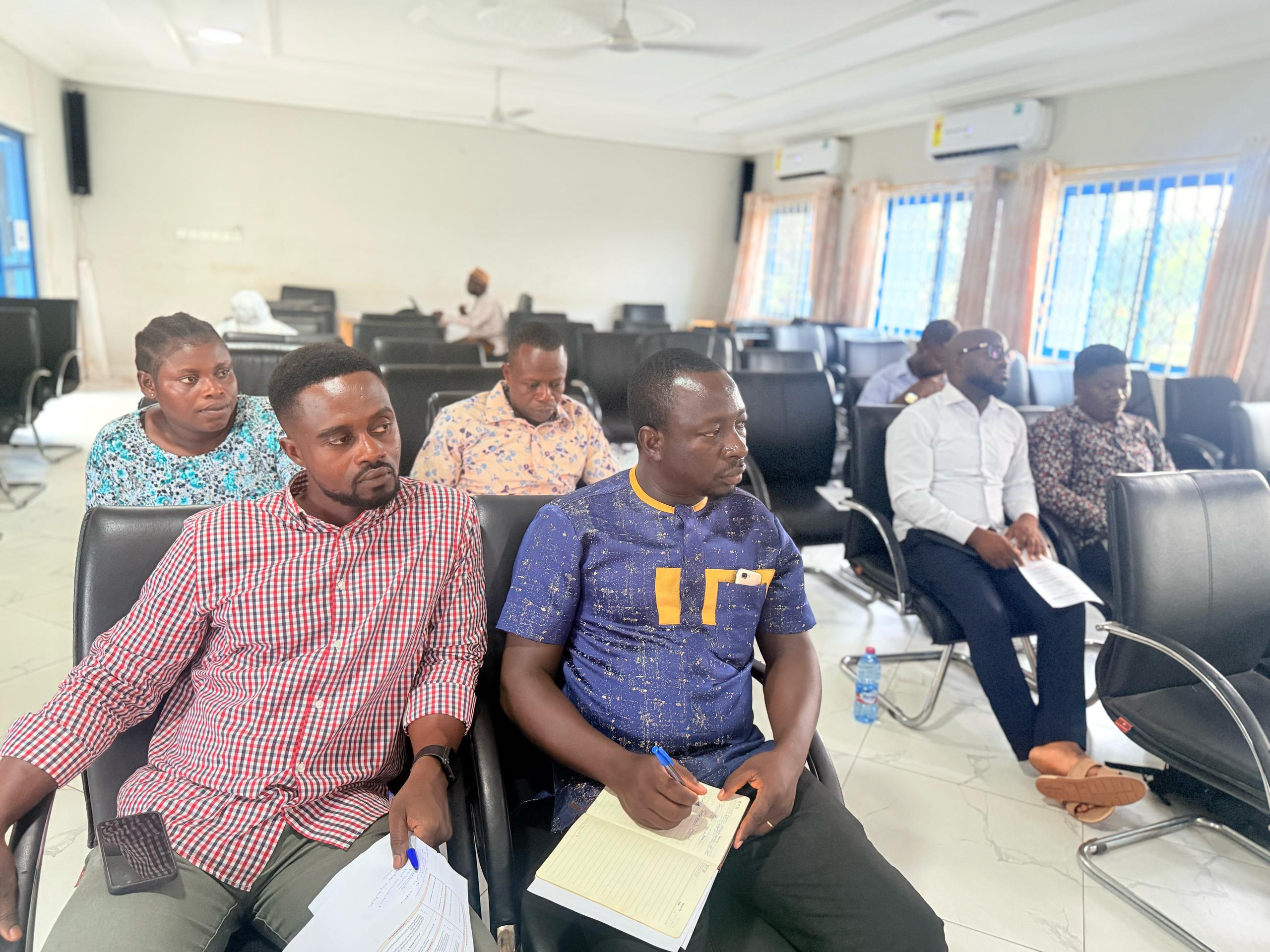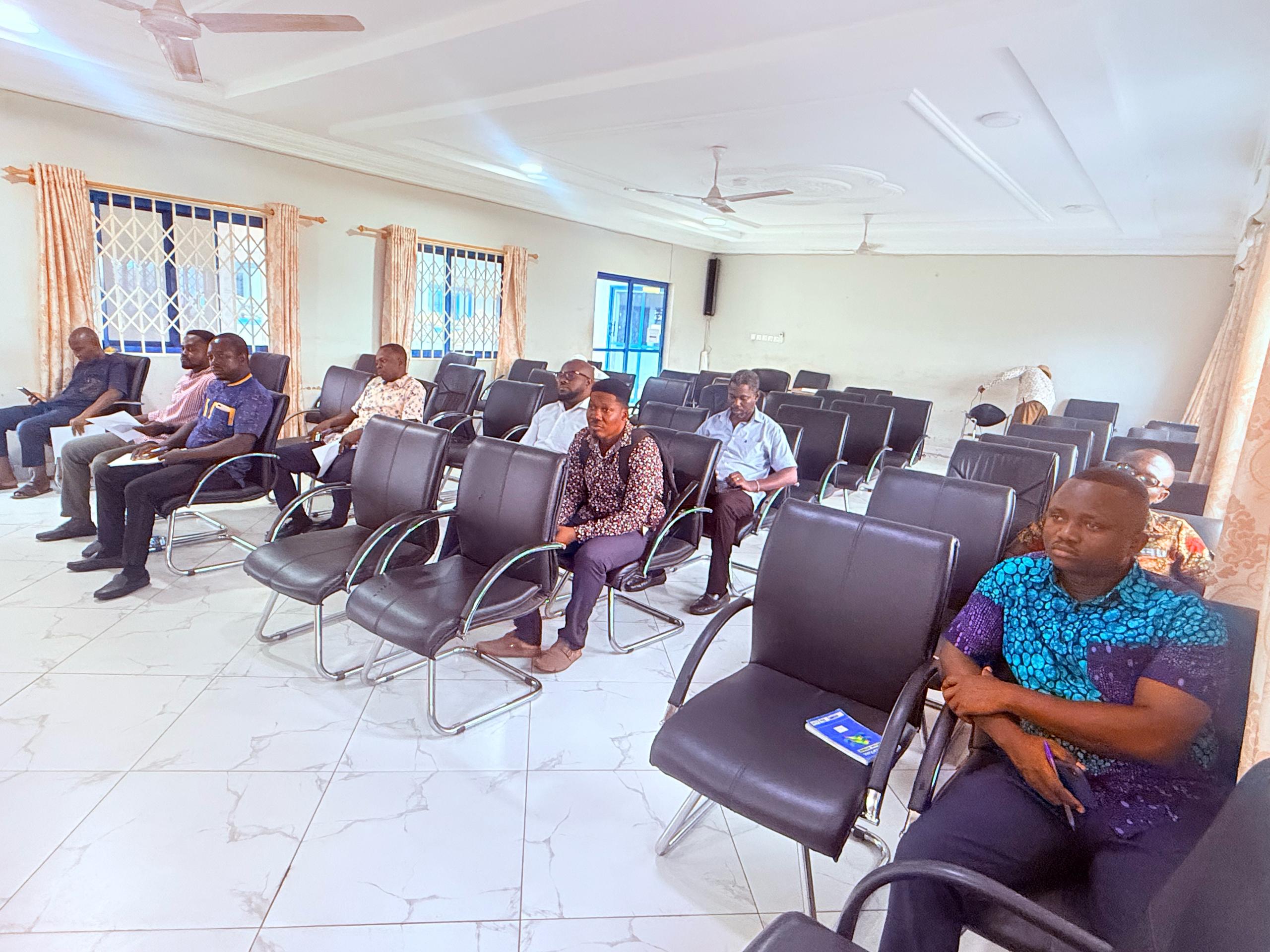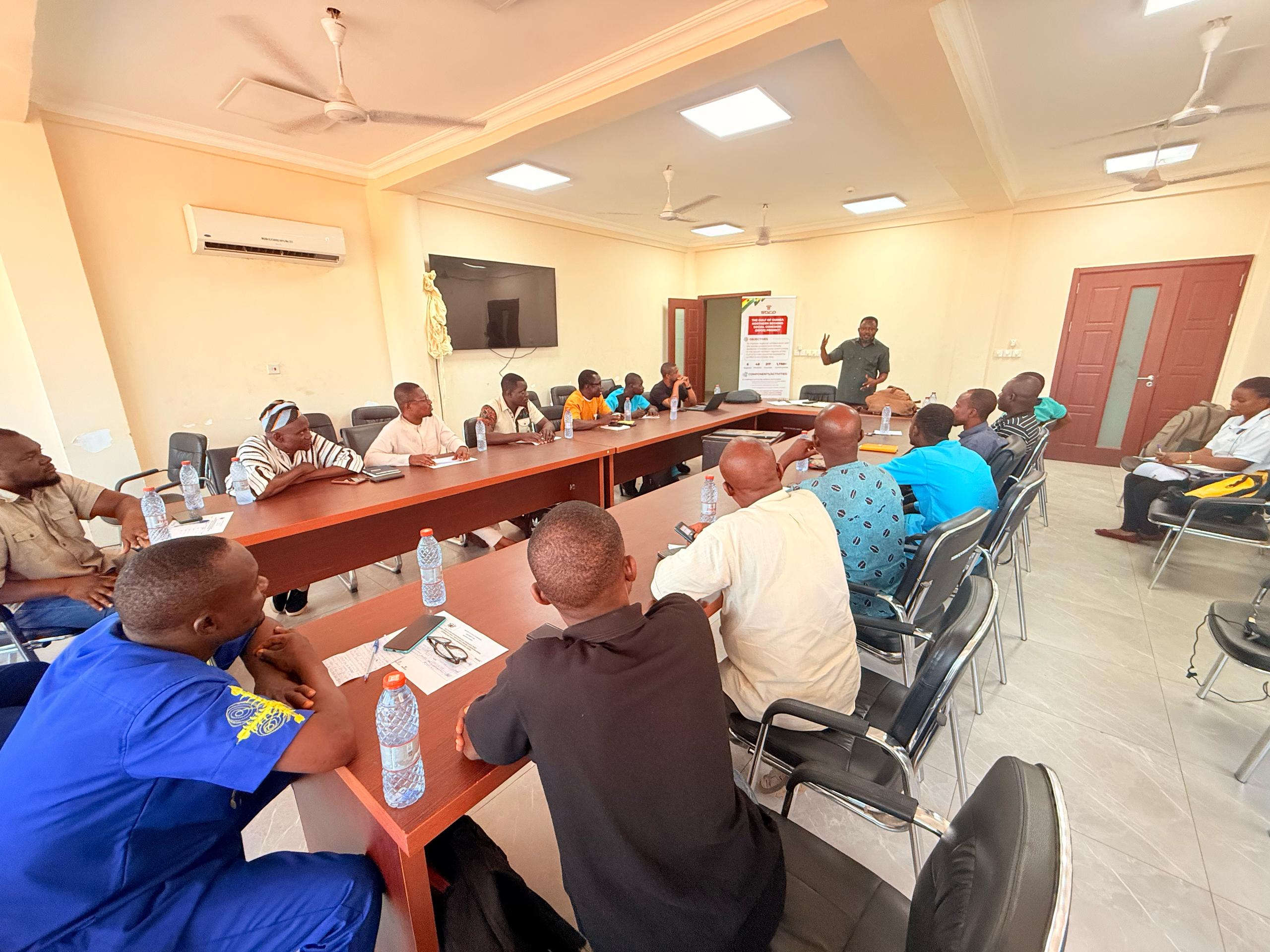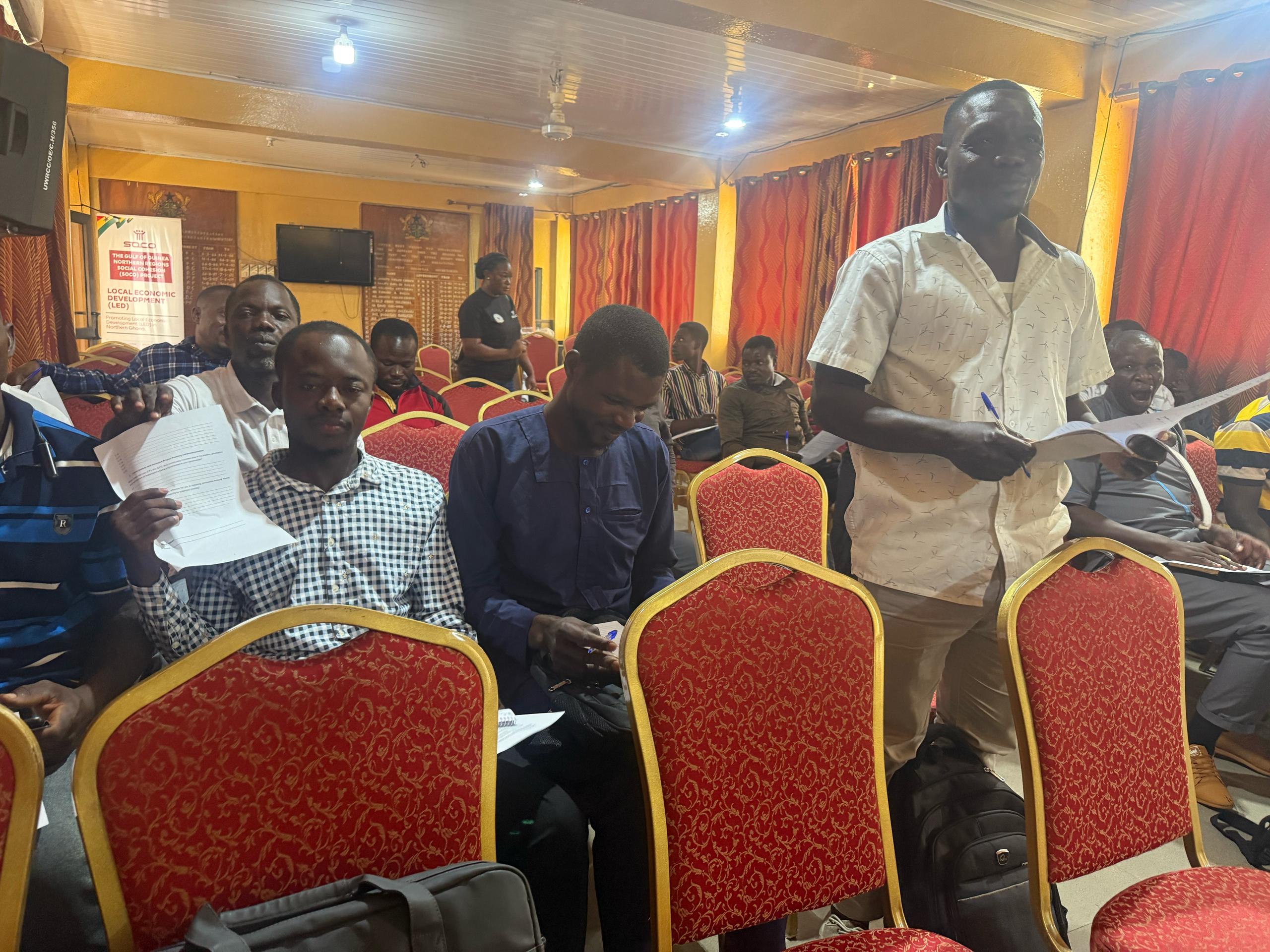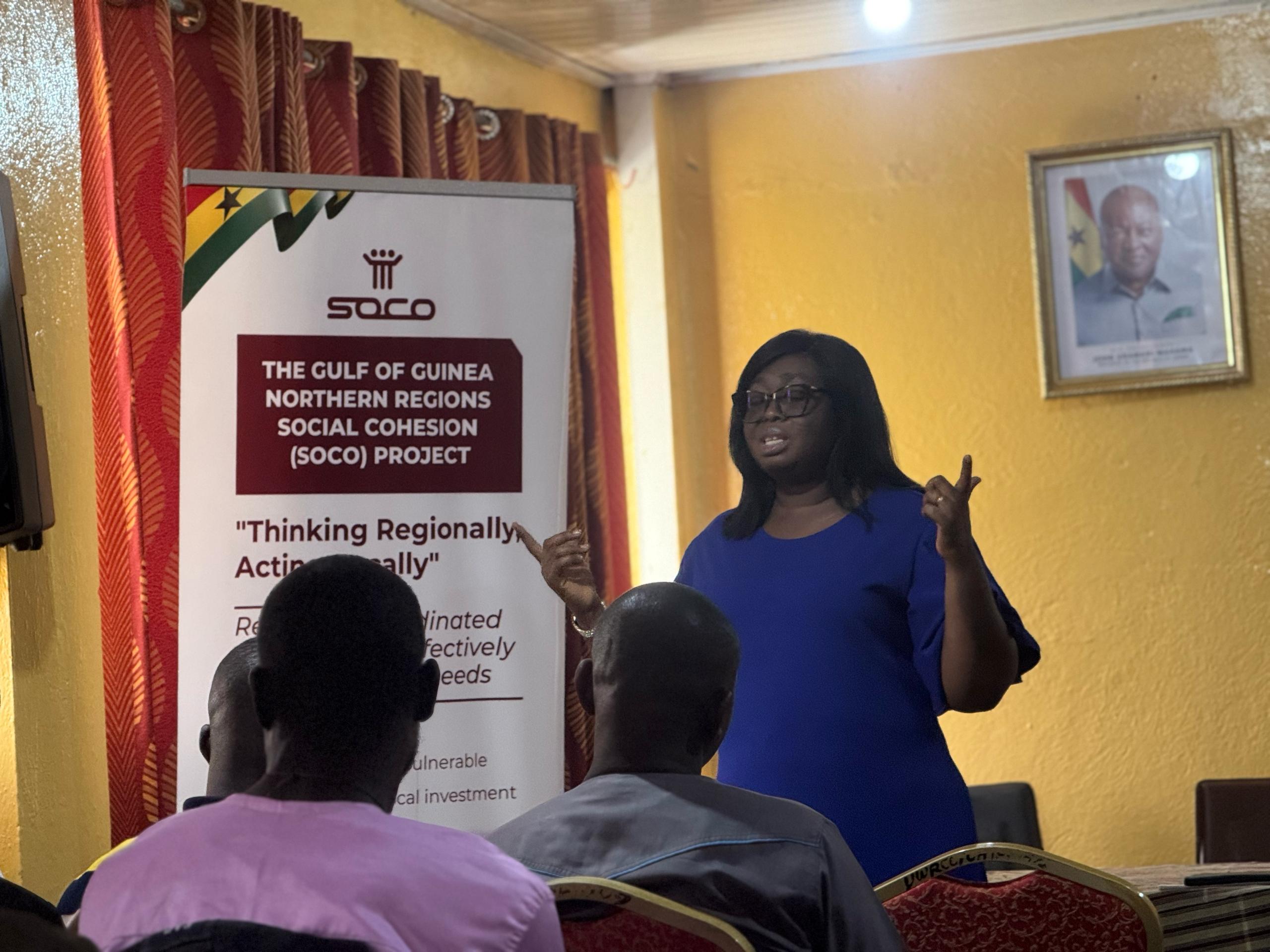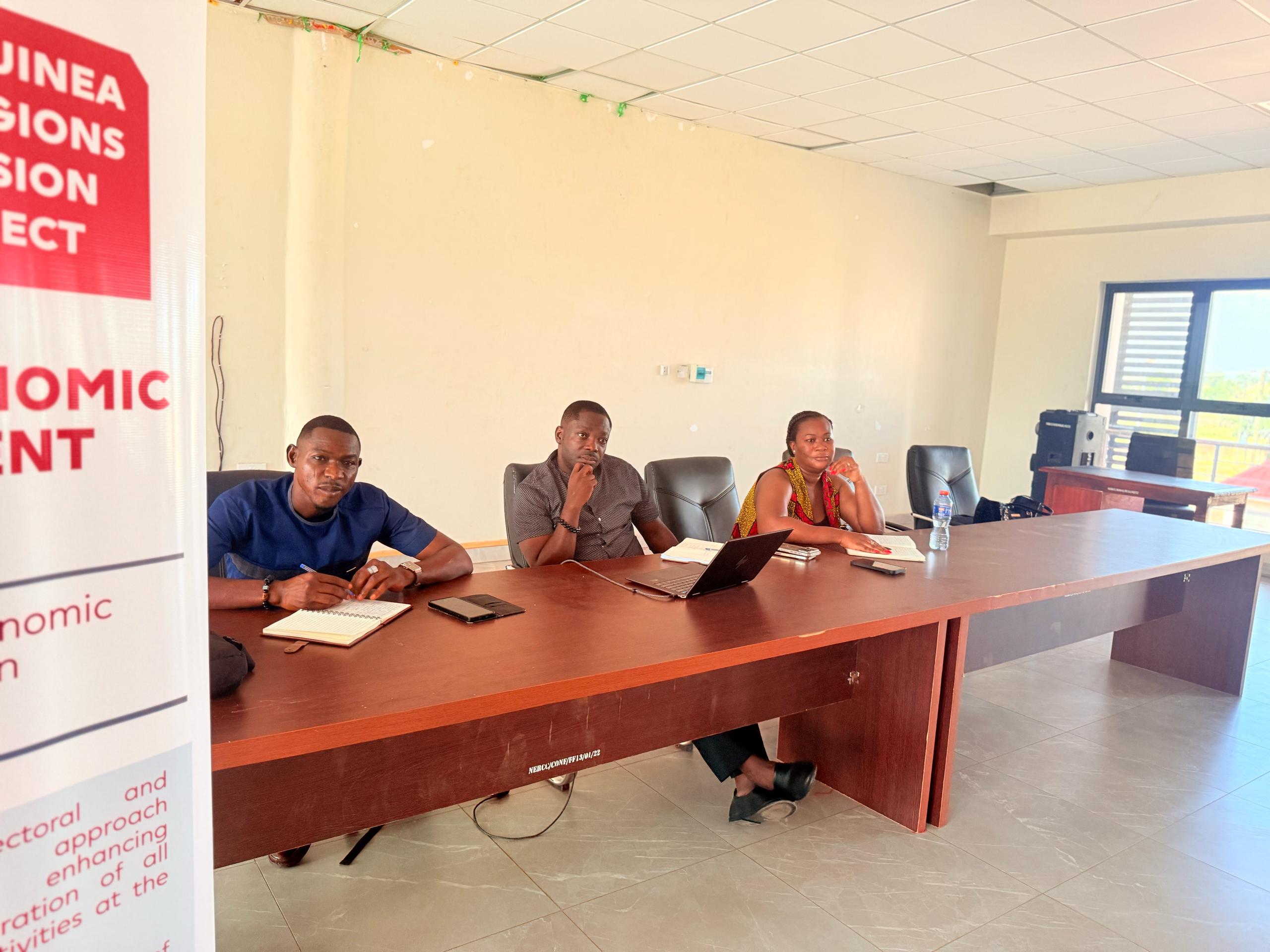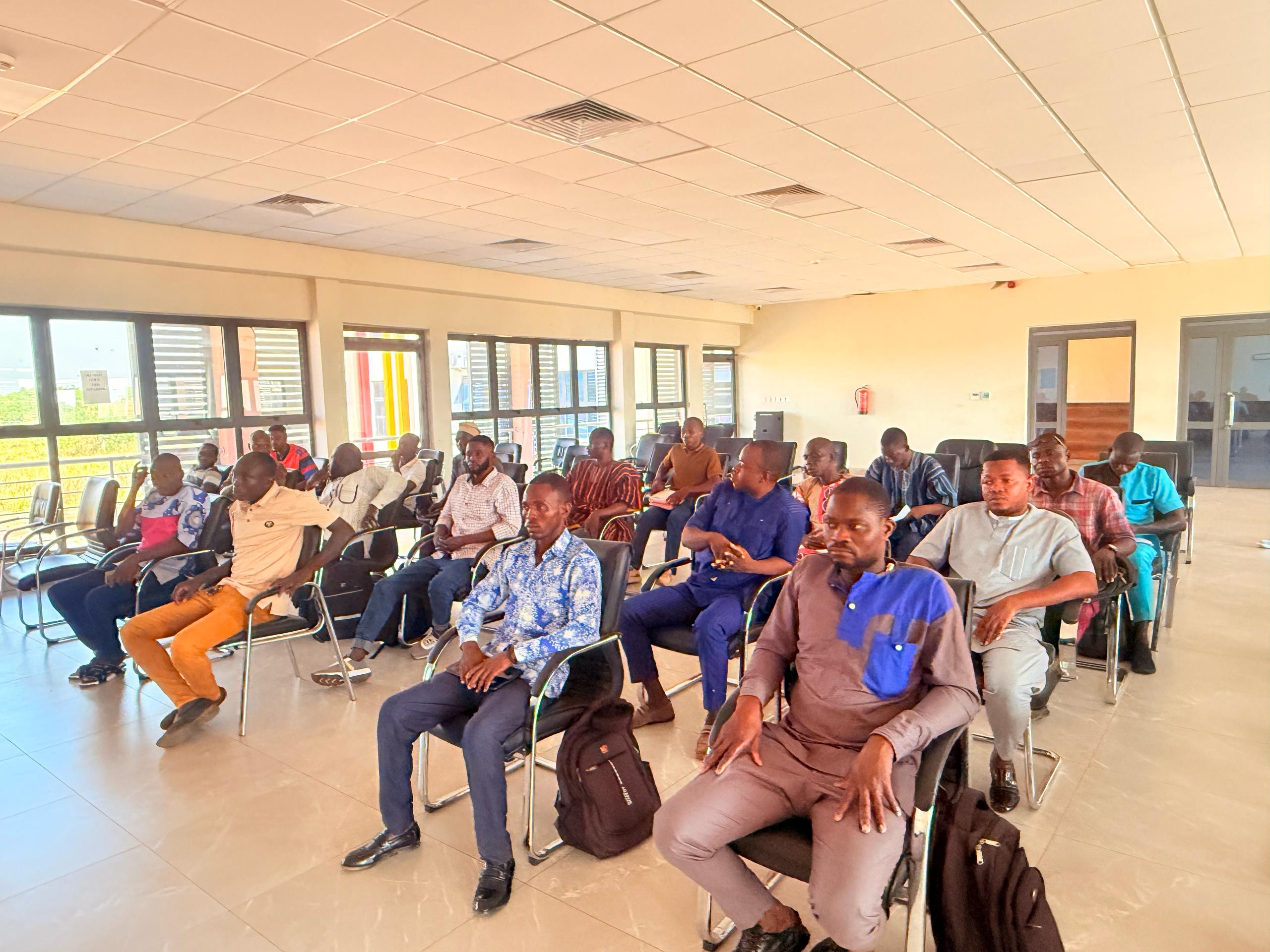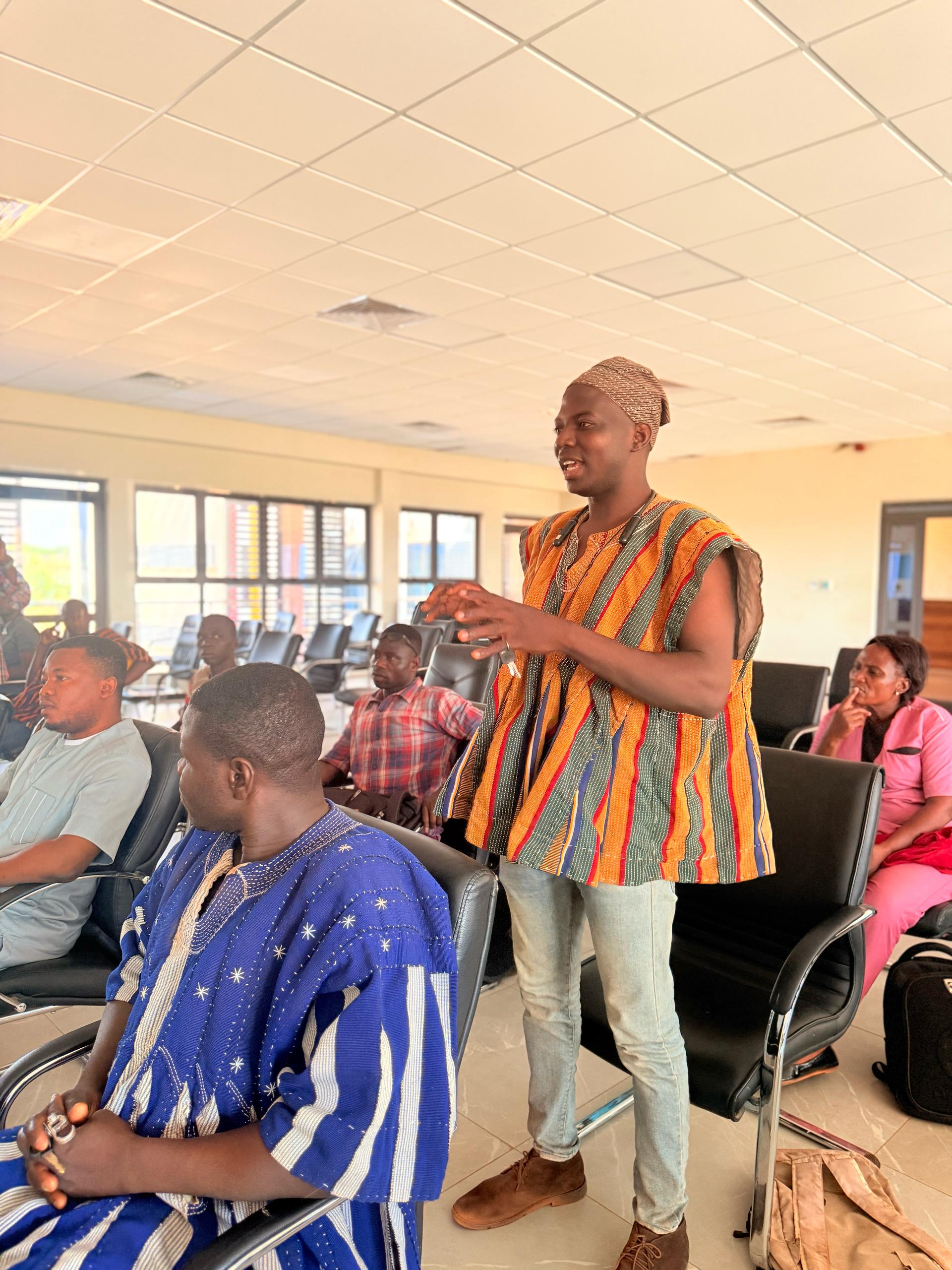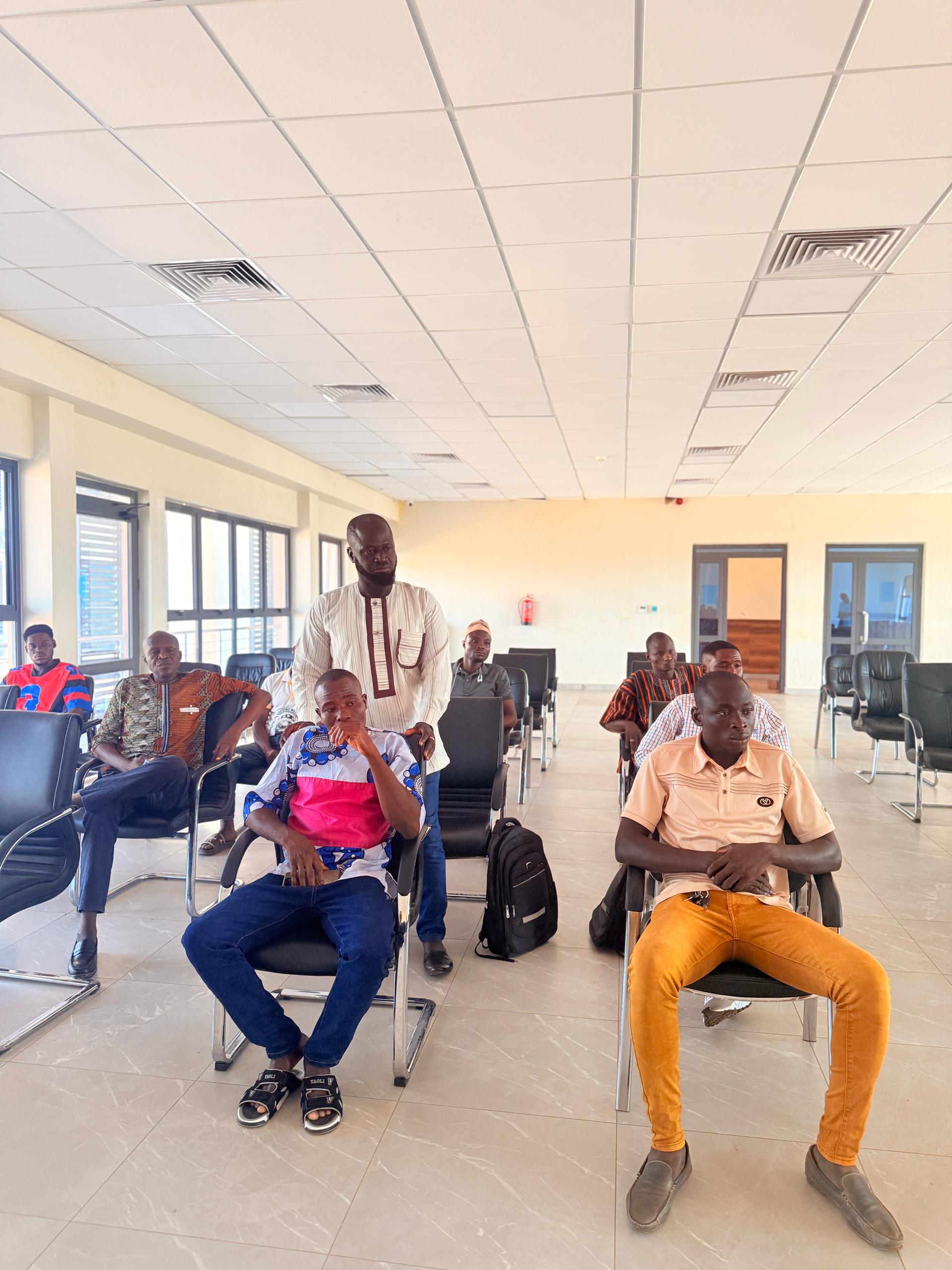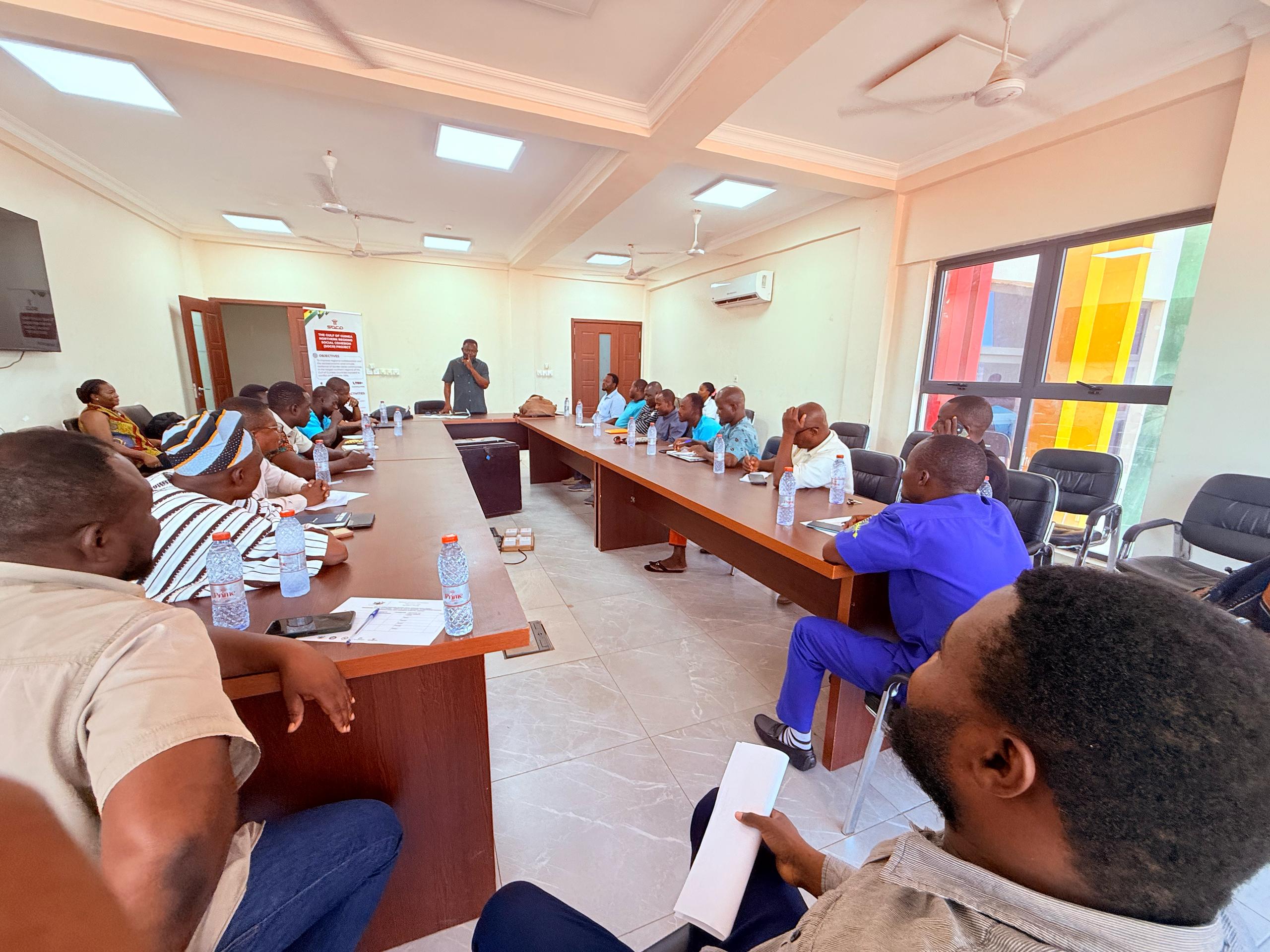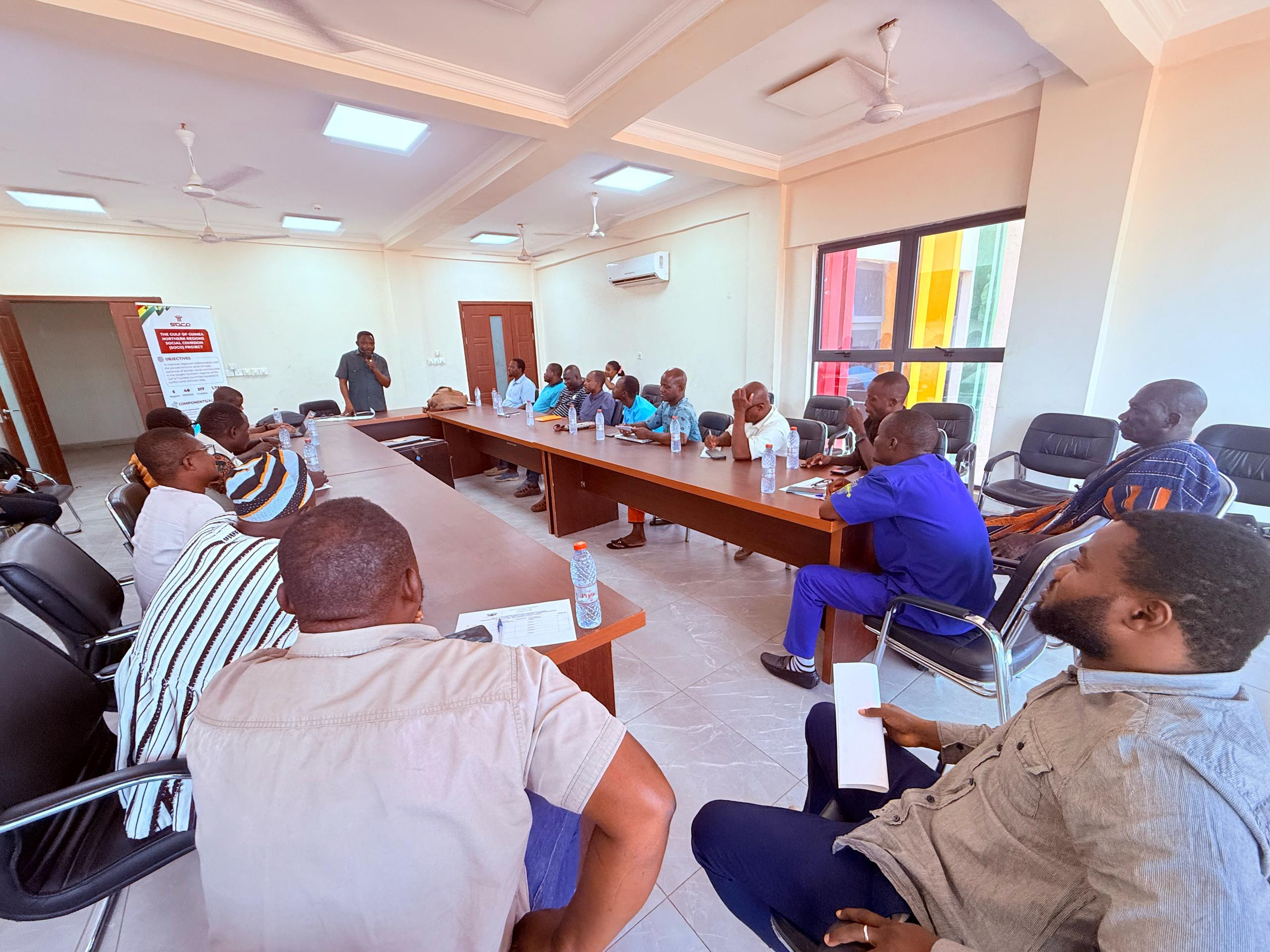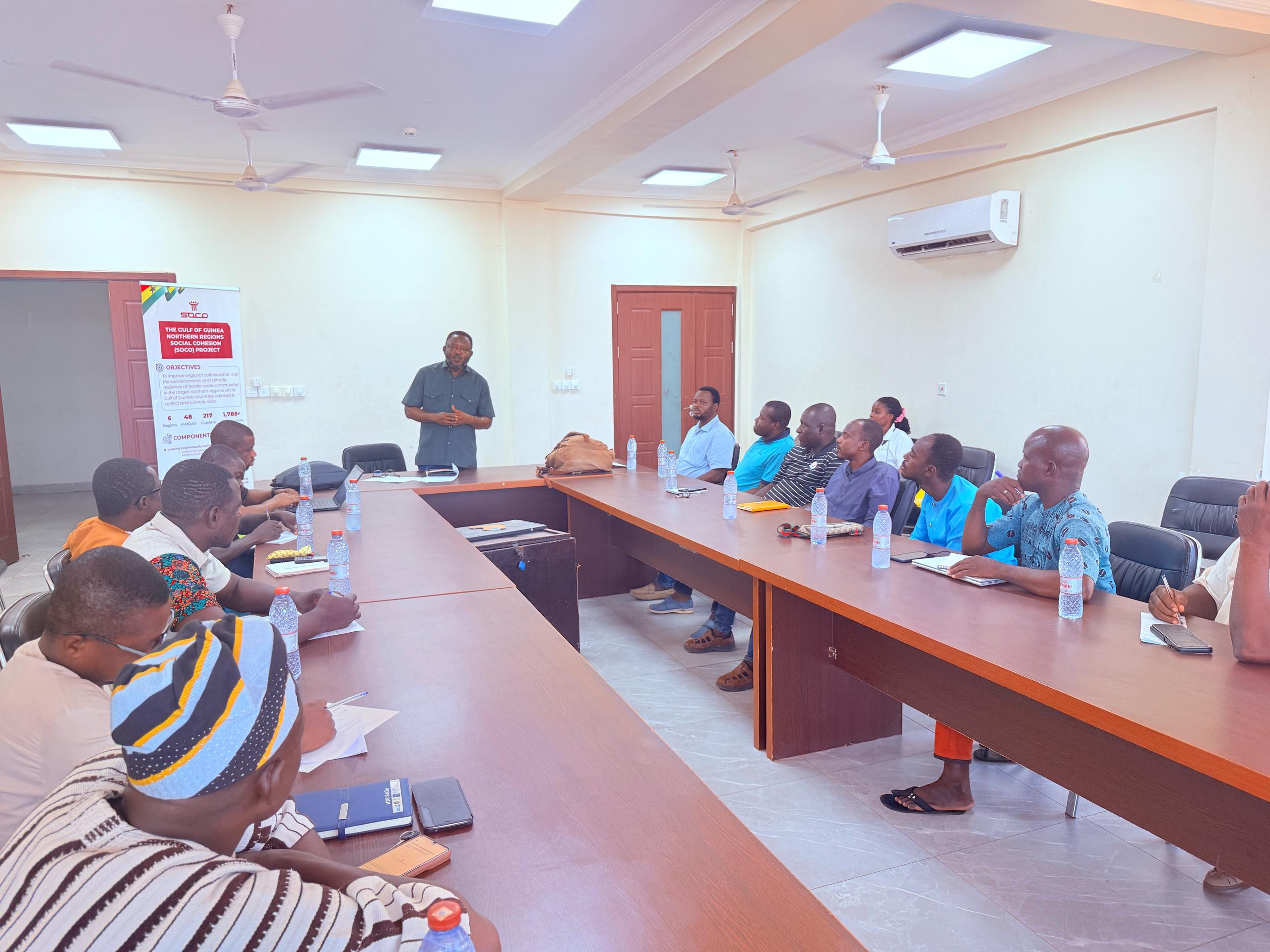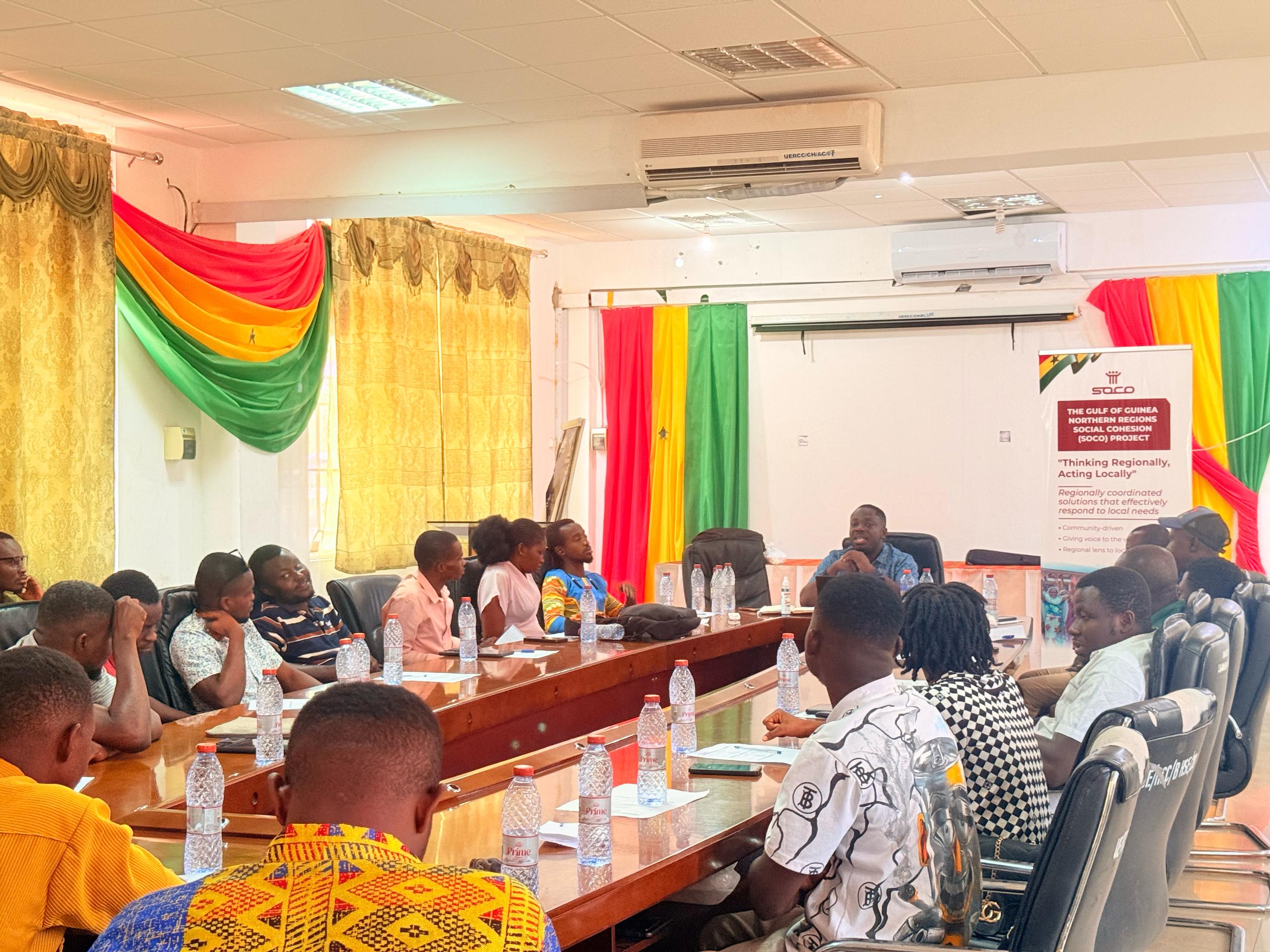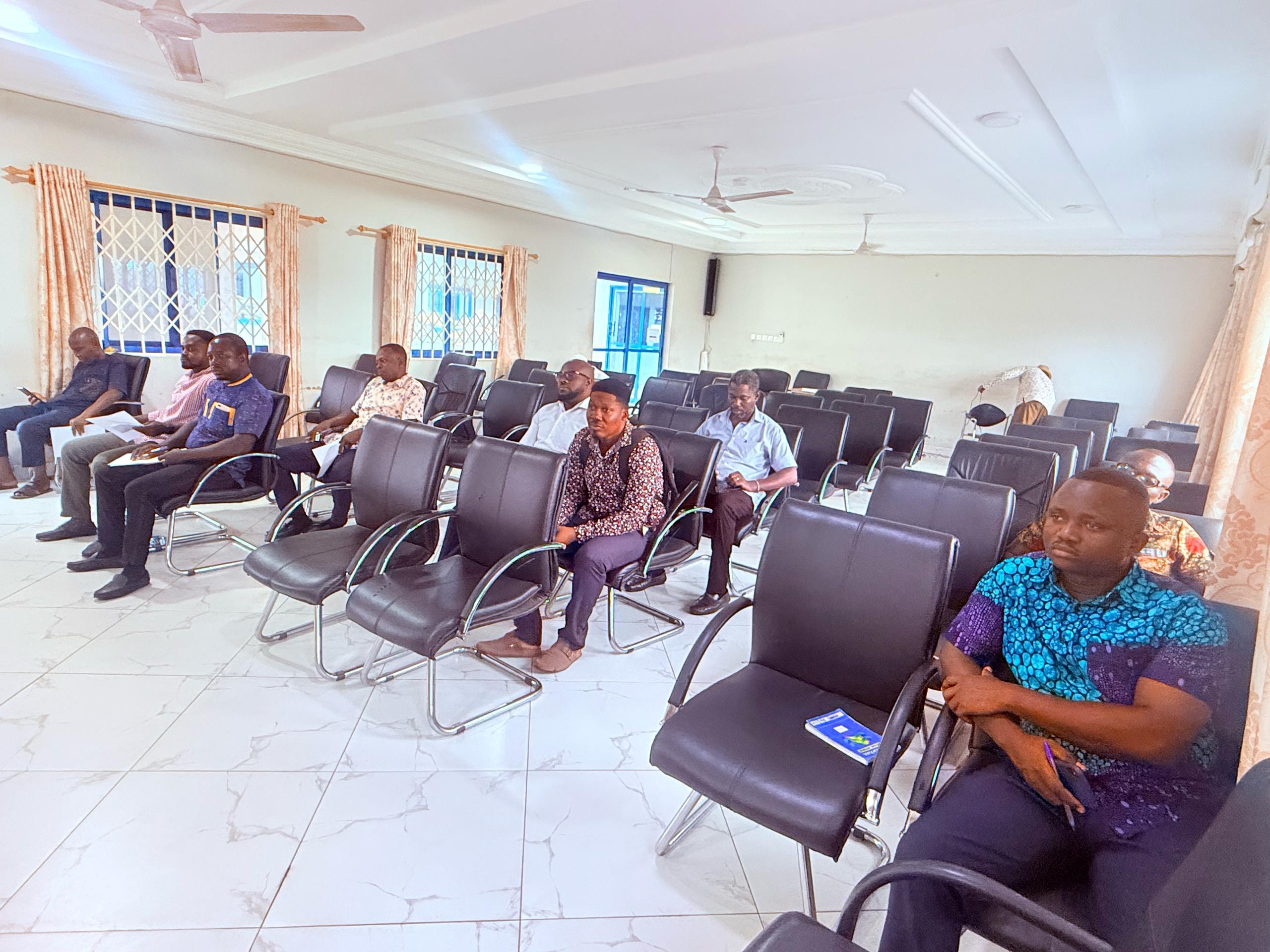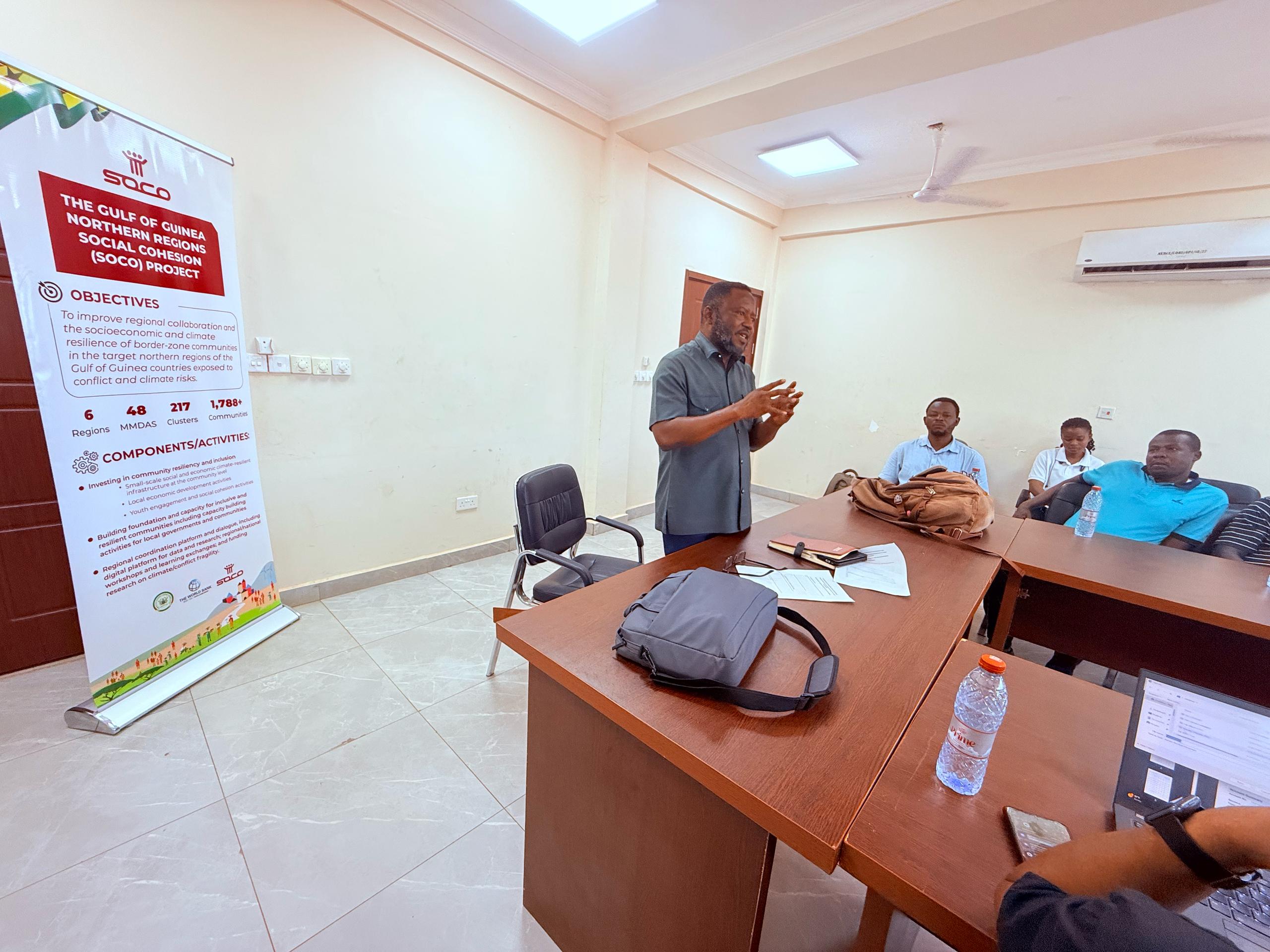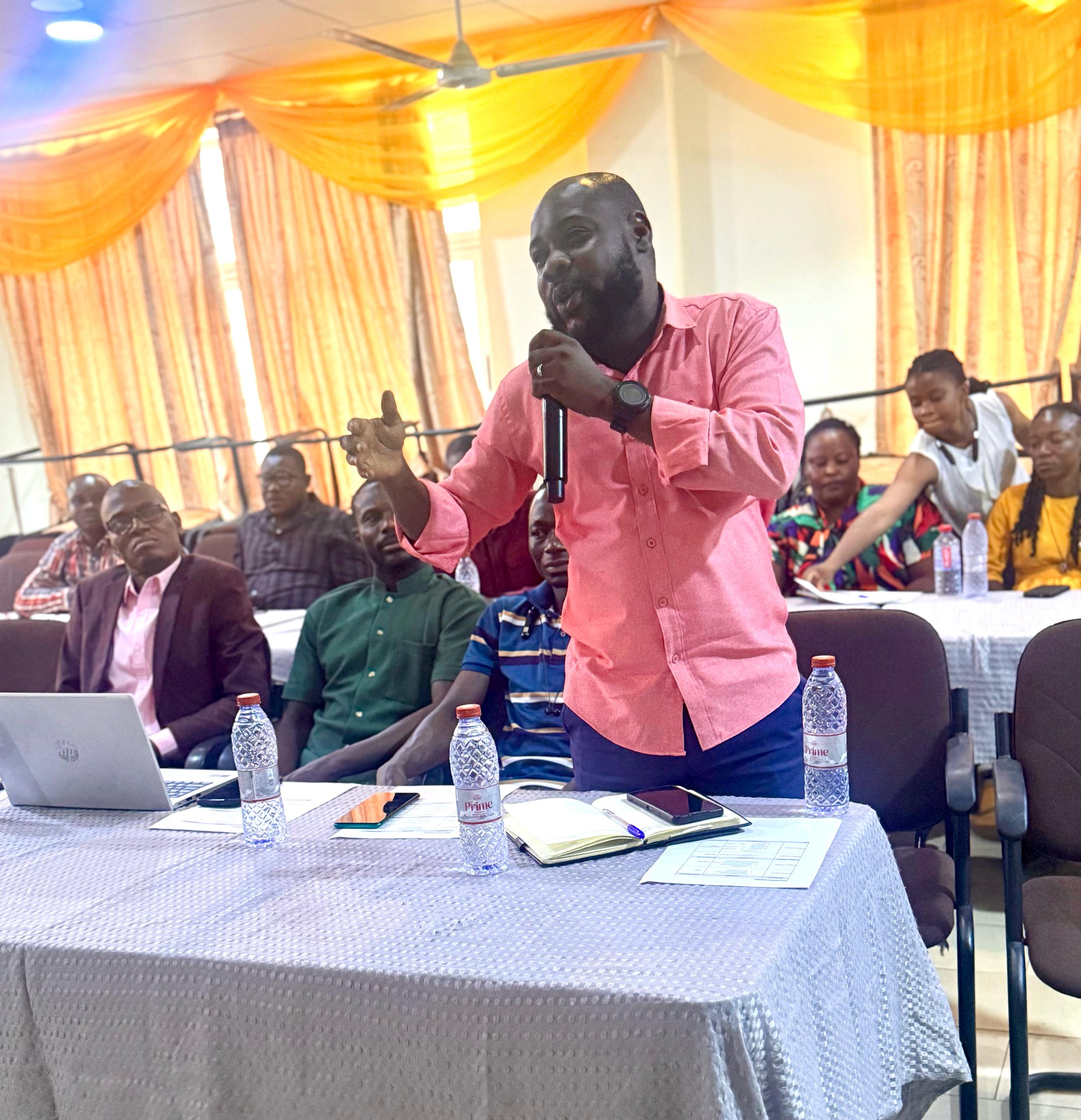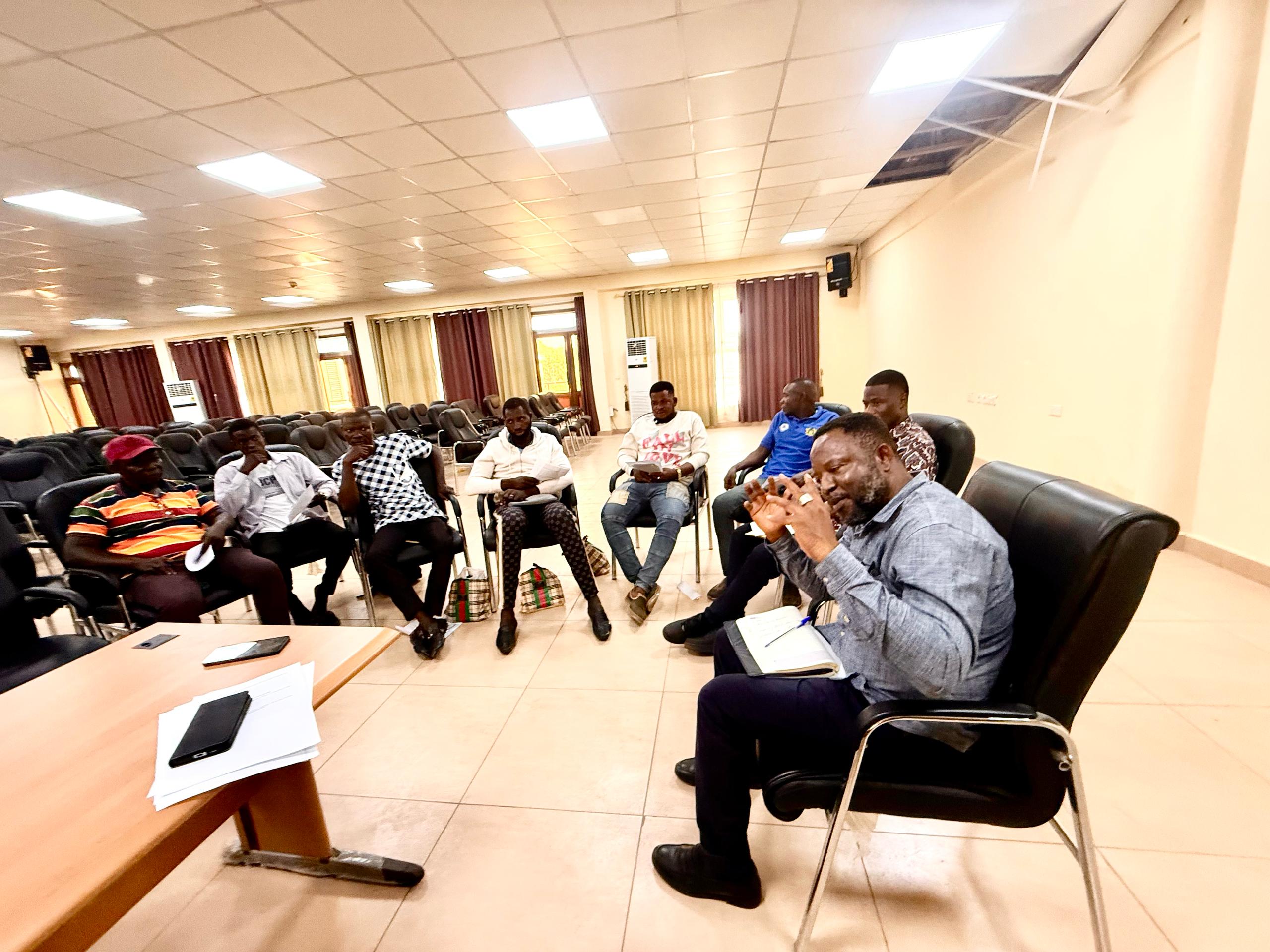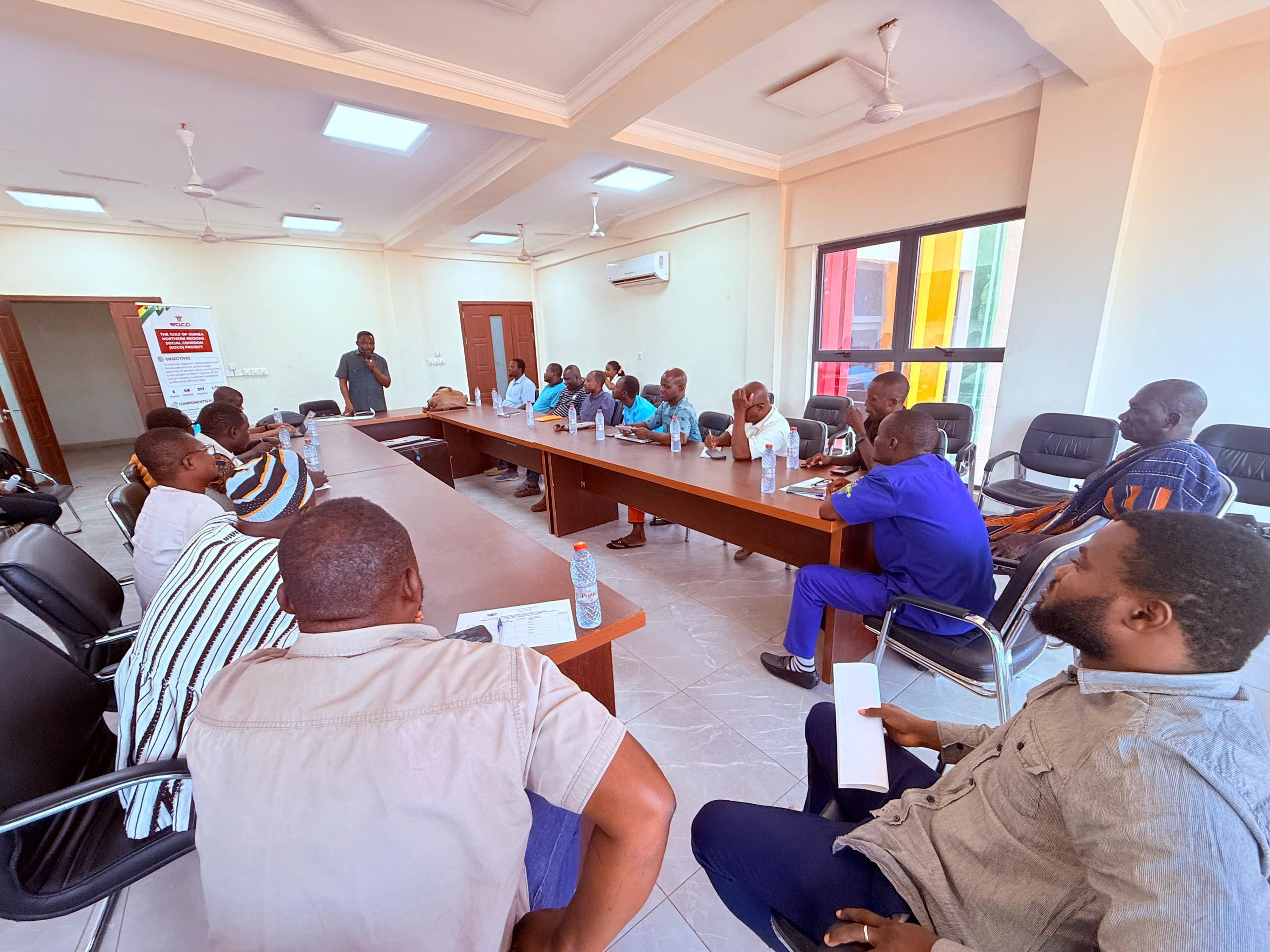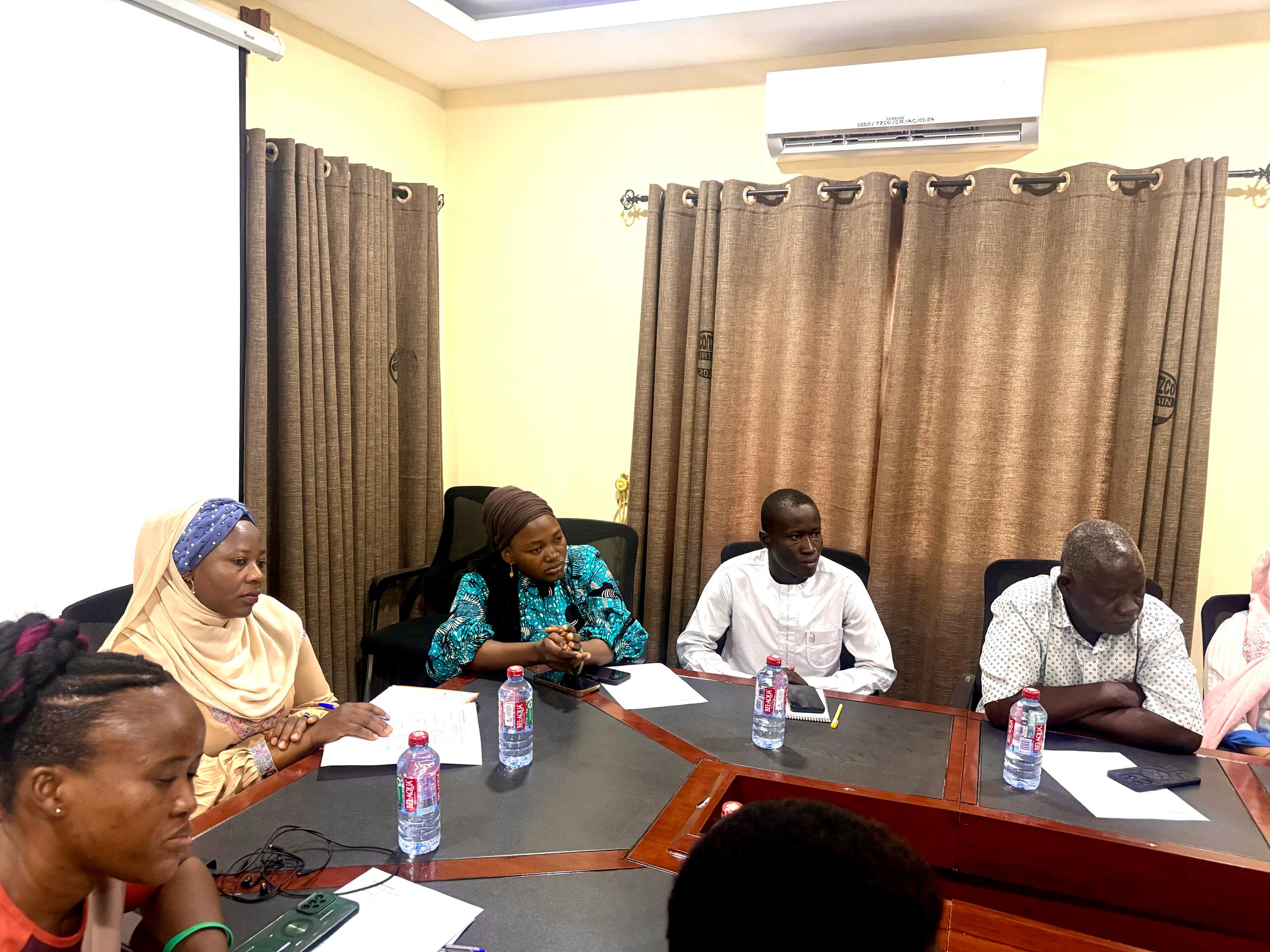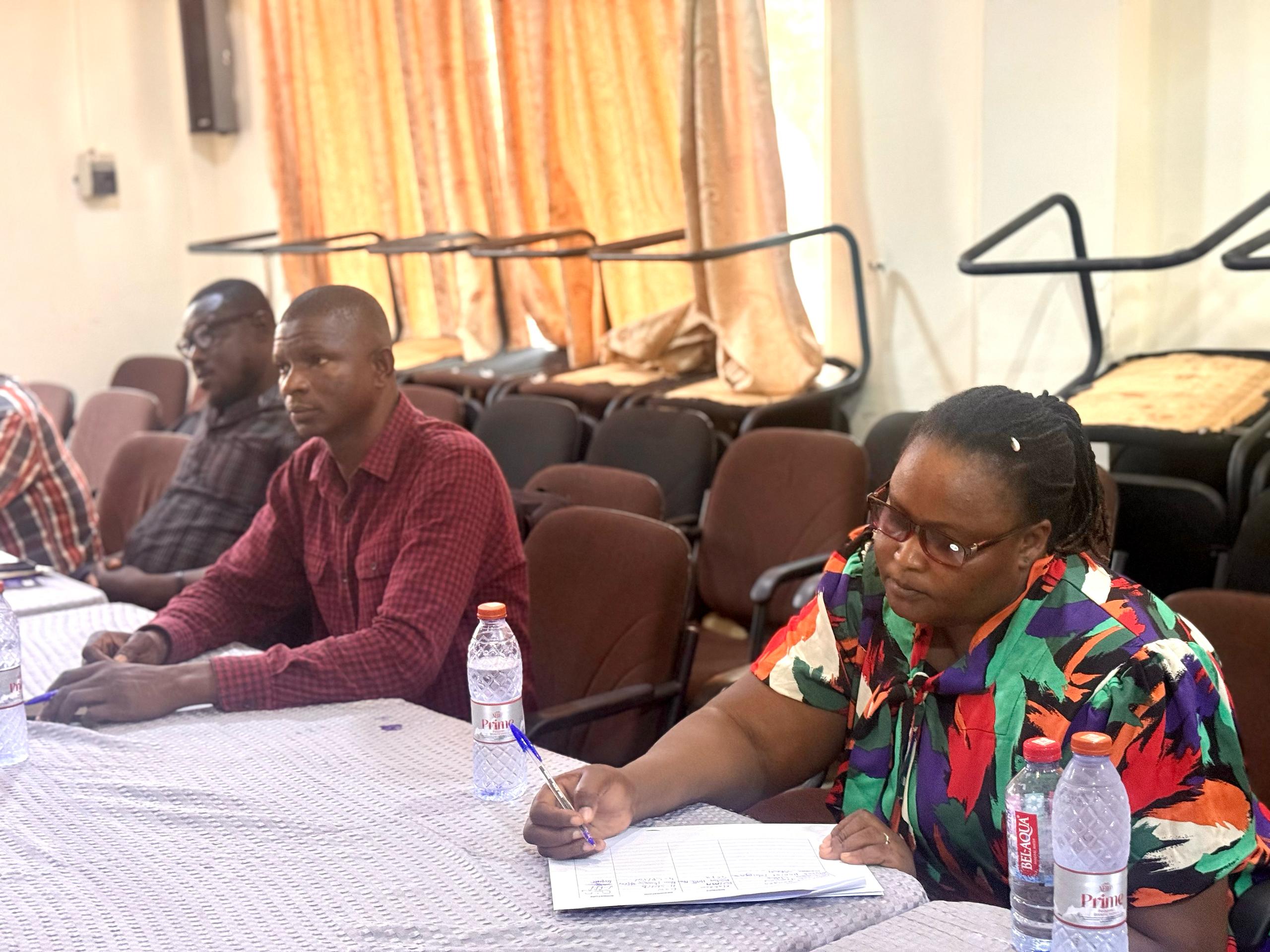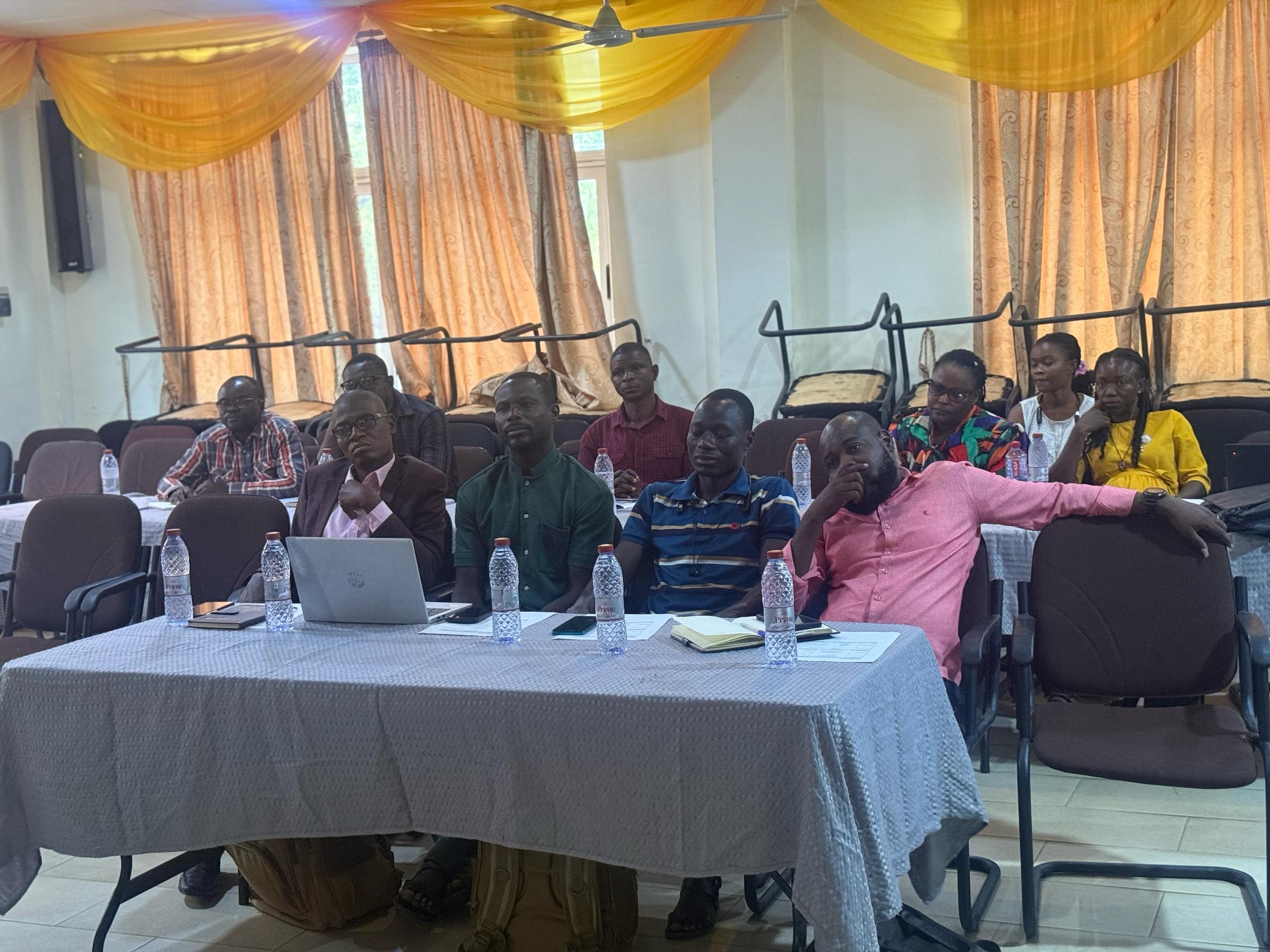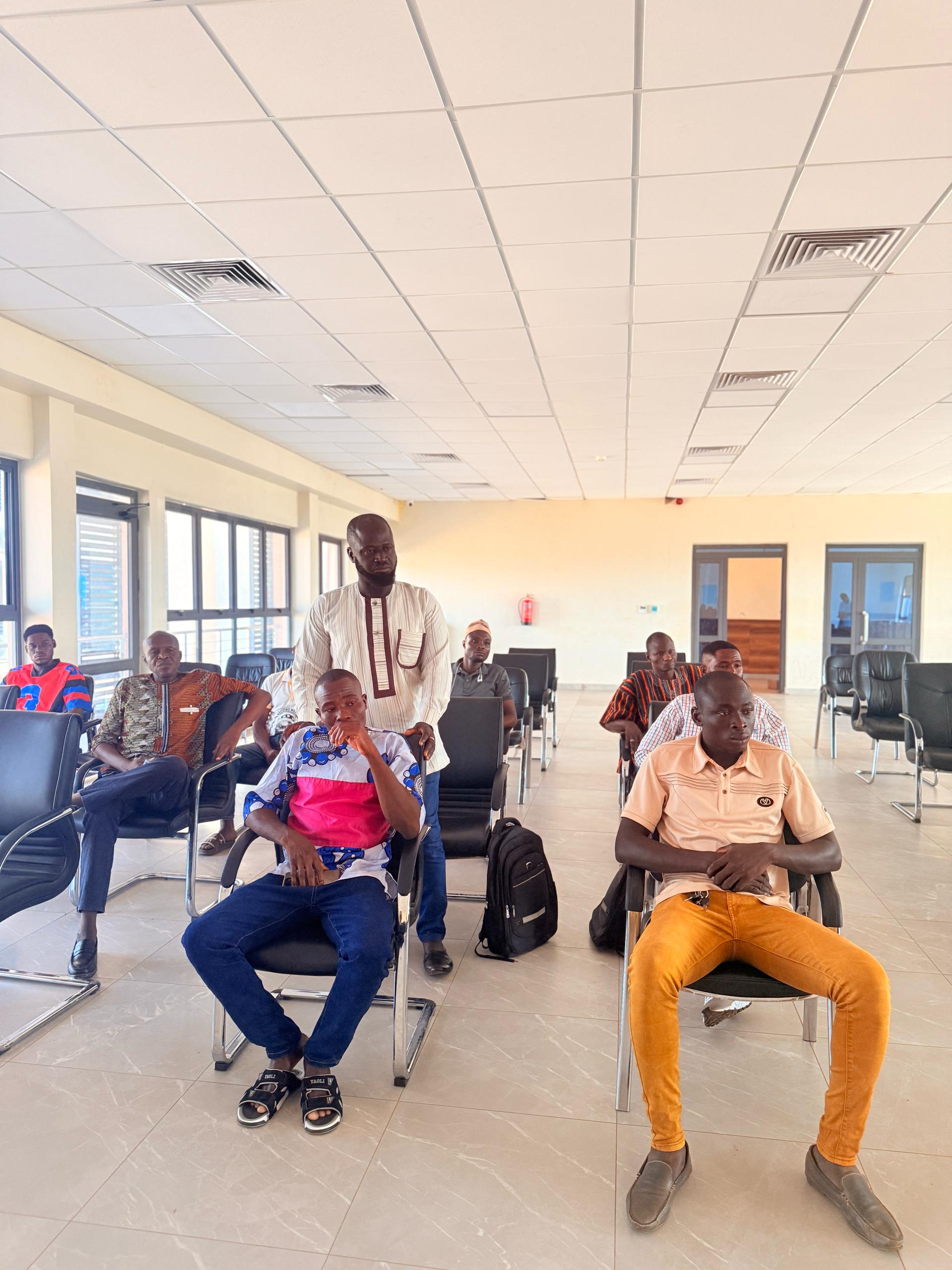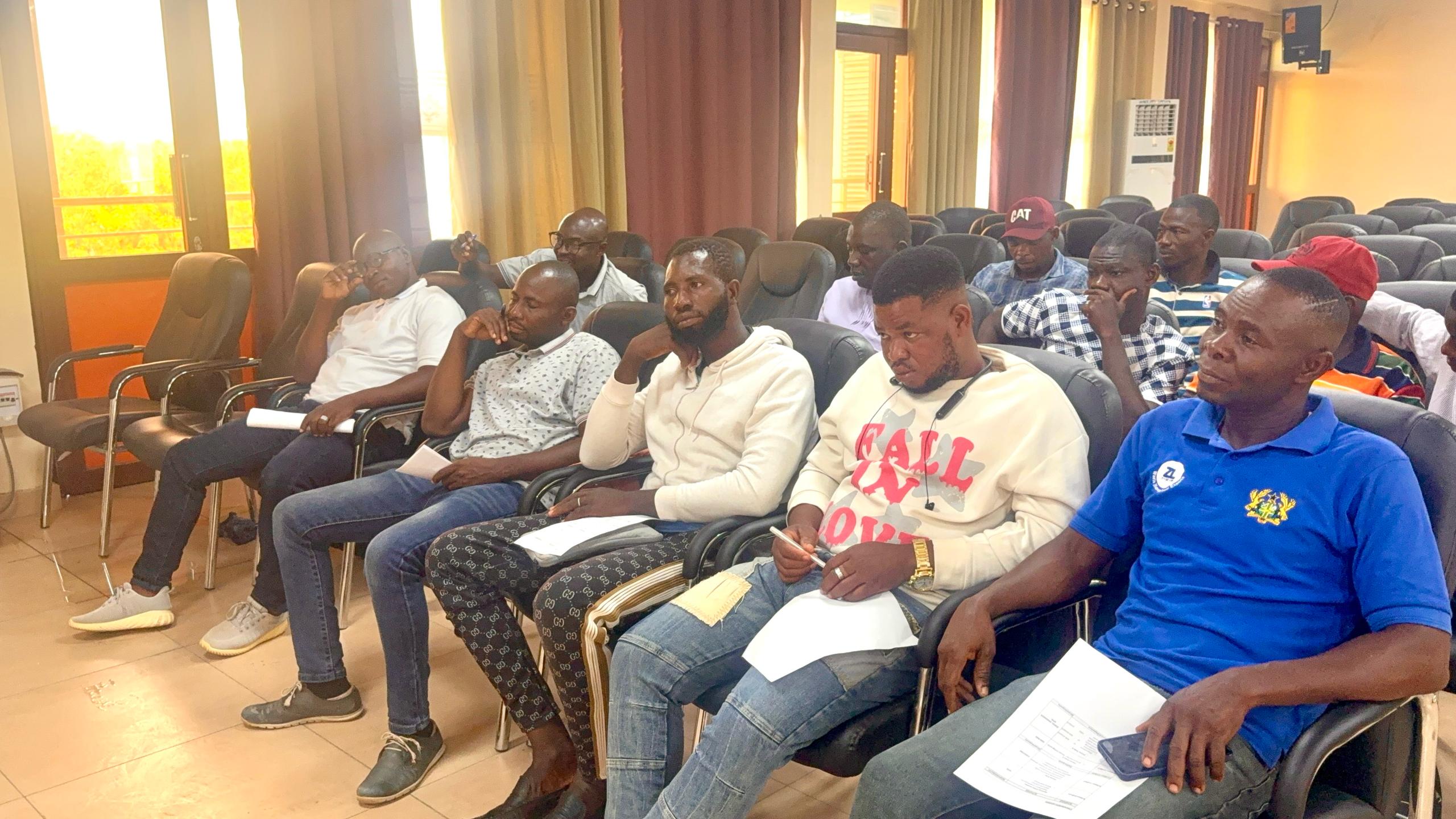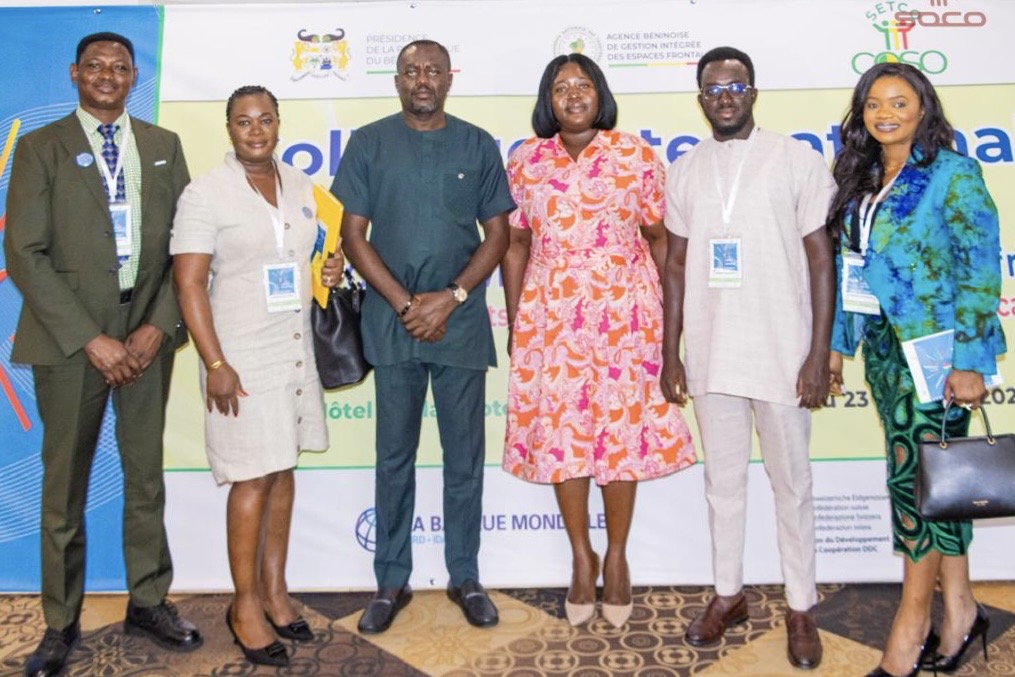In a determined effort to build on the gains of the first implementation cycle and to strengthen community-level delivery under the Gulf of Guinea Northern Regions Social Cohesion (SOCO) Project, the Project Implementation Unit (PIU) embarked on a regional engagement tour across six beneficiary regions from March 24 to April 2, 2025. The exercise, which formed part of the project’s midterm review activities, was held under the overarching objective of gathering lessons learned and best practices from the first two cycles of implementation to inform a more efficient and participatory approach going forward.
The sessions were conducted in the Upper West, Savannah, Northern, Upper East, North East, and Oti Regions, targeting Metropolitan, Municipal and District Assemblies (MMDAs) and Community Facilitators (CFs) who have been integral to field-level implementation. The engagement started in Wa on March 24, 2025, proceeded through Nalerigu, Tamale, Bolgatanga, and Damongo, and concluded in Dambai on April 2, 2025. The PIU team was composed of the Knowledge Management Specialist, Communications Specialist, Social Safeguards Specialist, and Capacity Building Specialist.
The engagement was structured to reflect on the effectiveness of the SOCO Project in delivering socio-economic infrastructure, livelihood improvements, youth engagement, and enhanced social cohesion. It was also geared towards evaluating the extent of participatory planning, environmental and social safeguards compliance, the use of digital tools, procurement practices, financial and quality standards adherence, and the effectiveness of project monitoring and social accountability.
Throughout the sessions, CFs and MMDA officers engaged in reflective and solution-oriented dialogue, articulating field-level experiences that spanned achievements, challenges, and opportunities for refinement. They provided critical perspectives on the extent to which inclusive planning mechanisms have enabled community ownership. The degree of adherence to environmental and social safeguards, particularly around non-discrimination, protection of cultural assets, and local employment and the practical functionality of digital tools like the GRM and CDD applications. Participants also examined how community entry protocols were observed and assessed the responsiveness of MMDAs to findings from social audits and feedback mechanisms.
Participants emphasized the value of community sensitization and capacity building in sustaining local ownership, while also highlighting the importance of aligning procurement processes with local realities. The PIU documented several cases of innovation and adaptability at the district level and pledged to factor these into the design of the third implementation cycle.
As of the end of the first cycle of implementation, a total of 530 subprojects were implemented, with 489 completed and handed over. In the second cycle, 680 subprojects have commenced, with a number already completed and others at varying levels of implementation.
The insights from this regional tour will feed directly into decision-making and strategic adjustments necessary for enhancing project effectiveness. The SOCO Project continues to prioritize participatory governance, transparency, and responsive implementation in its mission to build inclusive and resilient communities in northern Ghana.
